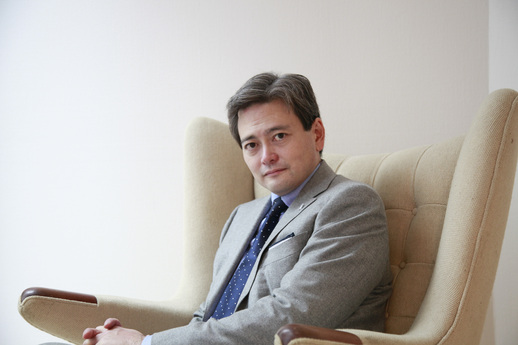2024.05.30
コラム/エッセイ伝統文化と私 (白洲信哉)
一般社団法人日本伝統文化検定協会副会長
白洲信哉

一般社団法人日本伝統文化検定協会 白洲信哉副会長 / 撮影:喜多村みか
この度、一般社団法人「日本伝統文化検定協会」副会長に就任した白洲信哉と申します。どうかよろしくお願い致します。
「伝統文化と私」と言うことでまず浮かぶのは、小学5年生の冬休みに祖母の白洲正子との何気ない会話から始まった聖徳太子の旅だった。三輪山から法隆寺に二上山向こうの太子御陵まで、それを機に取材旅行に同行、学生時代専攻したのは考古学だった。また、日常使っている汚い器たちや、家のいい場所に鎮座していたモノが、「骨董(こっとう)」と言われるジャンルに属するモノと知ったのも、大学に入り祖父母と同居してからだ。「三つ子の魂」ではないが、若い時分の経験値が今の礎であり、それがそのまま生業になって今に至っている。
僕らの伝統文化を乱暴に一言で申し上げれば「儚(はかな)さ」に「美」を見出してきた天才だと思う。ギリシャ神殿に代表される石造り、大理石の「永遠の美」と対極の、時の流れに逆らうことなく継ぎ繕い、春に咲く一瞬の桜や月の満ち欠けに、一つの食材を「走り、旬、名残」と、物事の浮かんでは消える「もののあはれ」を多様に表現し、いかに世界でも大変ユニークな位置付けであるか、微力ながら書き記してきたつもりだが、まさに今が伝統文化を繋(つな)ぐラストチャンスだと思う。
明治のご維新以来世界に目を向け、敗戦から高度成長期の東京オリンピックに続く先のオリンピックと、加速度的に世界へ門戸を開いてきたが、言い方を変えるなら自らの足元にある過去の「伝統」を捨てることで、経済成長を果たしてきたように思う。伝統文化とは消費されず「循環」していくもの、僕が愛玩する「古美術」と言われるジャンルなどその最たるもので、伝世してきたモノの「一時預かり人」として次の世代へバトンを渡す役割を担っている(はずである)。今回の試みがその一助となることを切に願いつつ、まずは、広く学ぶことで個々の数寄(すき)へと深化すれば理想的であるし、僕も不案内の文化に触れるきっかけにしたいと思っている。
文筆家、アートプロデューサー
カテゴリー: コラム/エッセイ





